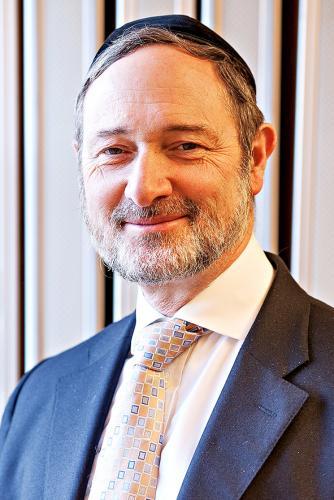A message to my dear friends in St Johns Wood
From Rabbi Yisroel Fine
Tomorrow after Mincha we will read the Haggadah in anticipation of the Seder next Wednesday night. For some it will be a night of thanksgiving celebrating newly born additions to their family. But for others, empty places will replace the recently vacated shivah chairs, or mark the absence of those who lie on sick beds in hospital or at home. May Hashem send the a Refuah Shlemah.
But every one of us will surely ask the Mah Nishtanah. How different this night will be for our families and for Klal Yisroel. Excepting for those with longer memories stretching back to the War years, can there ever have been a time when our swirling emotions have raised our heartbeat, intensified our prayers and brought us nearer to the ‘Healer of all Flesh’.
However, there is both a challenge and a danger that presents itself to all of us. How do we avoid the accumulative effect of this emotional battering resulting in emotional fatigue, spiritual paralysis and to put it simply, a state of complete despair?
Rabbi Yechiel Yaacov Weinberg points to the Haggadah formula by which we contrast the bad tines of the past with the triumph of the future; “we were once slaves to Pharaoh in Egypt, but Hashem brought us out from there” – “Our fathers were idol worshippers, but Hashem brought us near to His service” as the antidote to all emotional and spiritual paralysis.
The formula takes its lead from the halachic advice – “A person should not take his leave from his friend without a D’var Halachah, so that through this he will always remember him”.
The leave-taking from a friend or a loved one presents both a danger and an opportunity. The pain and heartache of leave-taking must not be allowed to remain the defining memory of that moment. Sentiment and emotion were not created to be an end in themselves, but rather as an impetus to practical Halachic expression – However a d’var Halachah will forever seal his friend in his heart and soul as an eternal and tangible memory.
As a nation we have never allowed the emotional anguish of the past to define us, but rather to be used as an impetus to propel us forward to better times ahead. Contrasting the sorrows of the past with the vision of a better future is none other than the indispensable formula which has allowed Klal Yisroel to endure and transform their slavery into freedom, suffering into healing and despair into hope. The ability to channel one’s emotional energy into Halacha, Jewish practice is the remedial and redemptive solution to emotional and spiritual fatigue.
Sometimes however messages of turning despair into hope can come from unlikely sources.
A former prisoner of the Landsberg Concentration Camp recalled their Seder.
“Instead of a richly decorated table, the scene was a fourth storey bunk in a remote corner of a filthy barrack. Instead of sweet wine there was bitter ersatz which the Germans called coffee. And instead of the family, a group of people from all four corners of Europe.
On the afternoon before the first night of Pesach, we made the last preparations for the celebration of the Yom Tov. A board served as a table. From burned sugar and water we made artificial wine. We finally sat down and started saying: ‘Ho Lachmo Anyo, – This is the bread of affliction’.
When we came to the phrase ‘L’shono habo b’nai chorin – next year we will be free men’, something extraordinary happened. A pale young boy started shouting with all his might, Stop!’ Everybody turned his face to him. With a moving voice he turned to us: ‘Brothers, we cannot wait any longer. Let us change the phrase; instead of ‘next year’, let us say, ’this year we will be free.’ We all answered ‘omein’.
On the day of the 27th of April, we were freed by the American army. The liberation date coincided with Pesach Sheni. On that day we reminded ourselves about the pale boy who didn’t want to wait another year.”


